Introduction
The ultimate guide to Japanese Chin covers everything you need for their care and well-being.
-
This breed is small, typically weighing between 7 and 11 pounds
-
Japanese Chin dogs are known for their unique facial expressions and coat
-
They are great companions and thrive in calm environments
-
Proper care and attention are necessary for their overall health and well-being
-
This guide will cover essential aspects of owning a Japanese Chin
1. Breed Overview
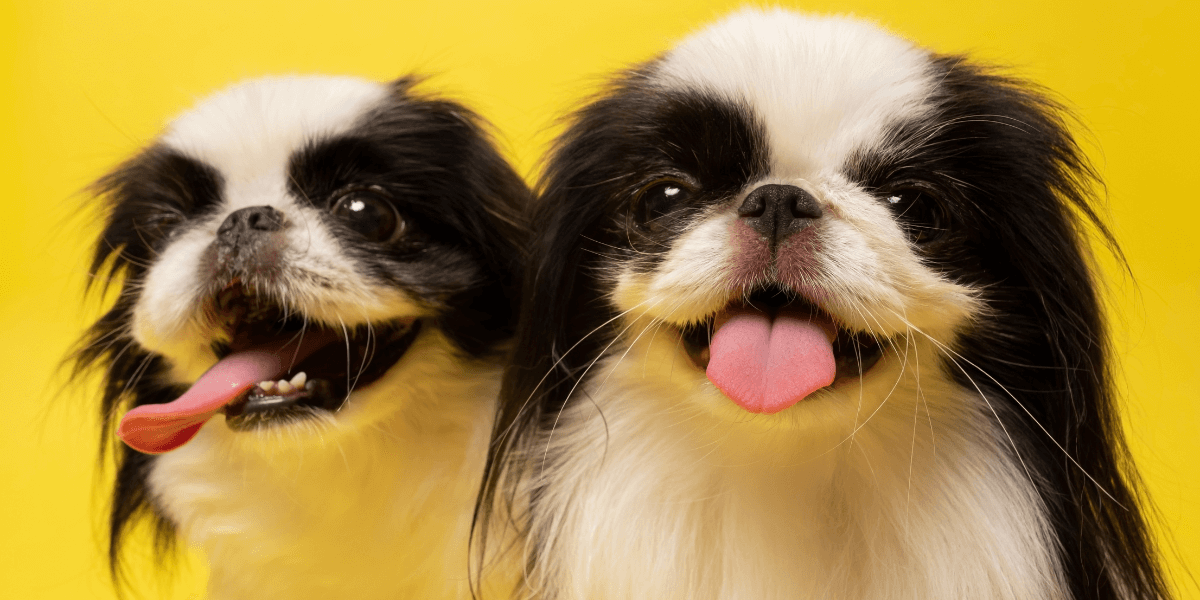
A quick introduction to the key characteristics of the Japanese Chin.
- Origin: The breed hails from Japan and China
- Size: They are small, typically 7-11 pounds
- Coat: They have a long, silky coat that needs regular grooming
- Temperament: Affectionate, playful, and quiet
- Lifespan: They live an average of 10 to 14 years
- Exercise Needs: They need moderate, daily exercise
- Intelligence: Highly intelligent and eager to learn
- Best For: Great for apartments and small homes
2. Personality and Temperament
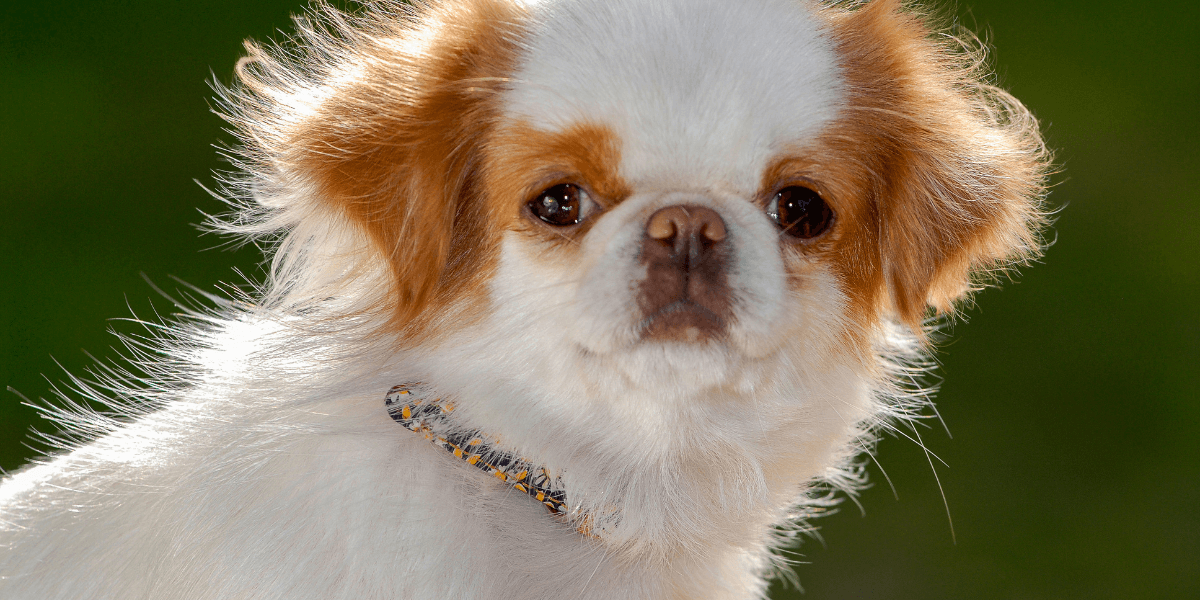
Understanding the temperament of the Japanese Chin helps in bonding.
- Affectionate: They love to be with their owners
- Playful: They enjoy light play and games indoors
- Loyal: They form strong bonds with their families
- Alert: They are good watchdogs but not excessive barkers
- Adaptable: They adjust well to apartment living
- Social: They get along with other pets and people
- Quiet: Not known for being loud or hyperactive
- Independent: Can be left alone for short periods without issues
3. Training and Socialization
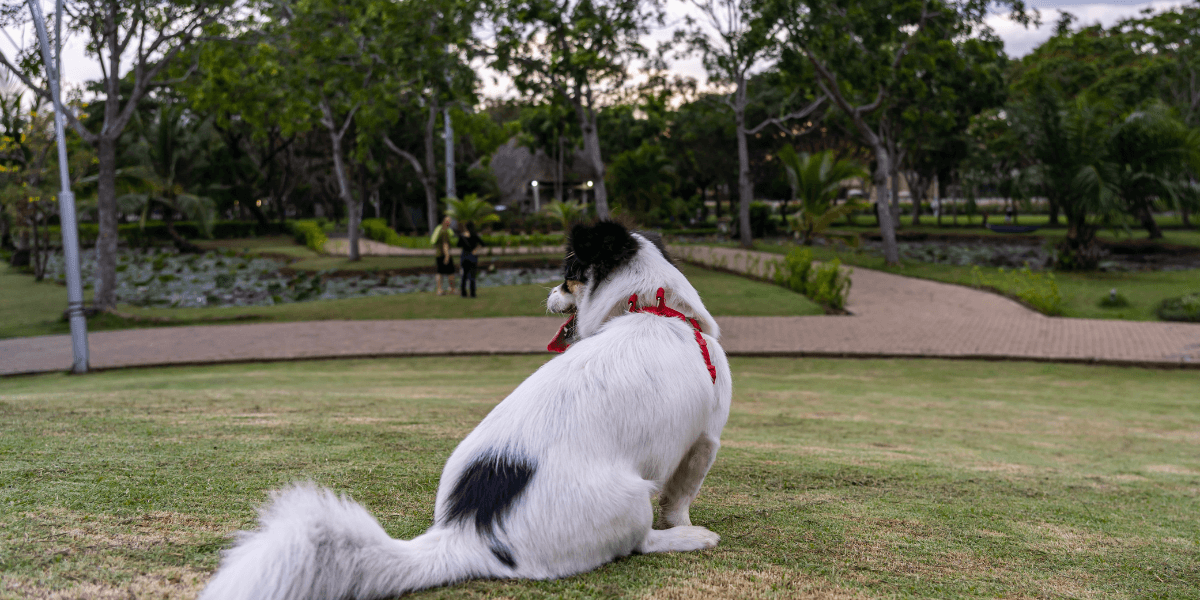
In the ultimate guide to Japanese Chin, proper training and socialization are essential.
- Easy to Train: They respond well to positive reinforcement
- House Training: They can be house-trained with consistency
- Obedience: Early obedience training is recommended
- Socialization: Introduce them to different environments early
- Commands: Teach basic commands like sit, stay, and come
- Play Groups: They enjoy socializing with other dogs
- Positive Reinforcement: Reward-based training works best
- Crate Training: Crate training can help with housebreaking
4. Grooming Needs
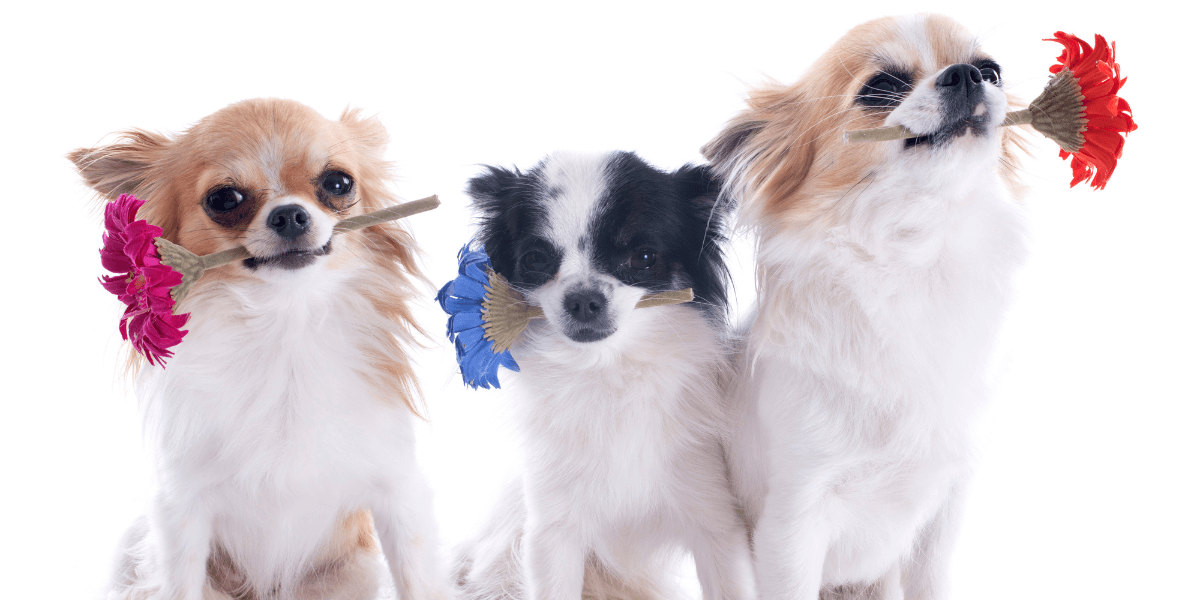
Tips on how to keep your Japanese Chin’s coat and appearance healthy.
- Coat Care: Regular brushing is essential to prevent tangles
- Bathing: Bathe them once a month or as needed
- Nail Trimming: Trim their nails regularly to avoid discomfort
- Ear Care: Check and clean their ears weekly
- Teeth Care: Brush their teeth daily to prevent dental issues
- Eye Cleaning: Clean around their eyes to avoid tear stains
- Shedding: They are moderate shedders, especially in spring
- Groomer: Consider professional grooming for thorough care
Discover grooming tips to keep your Japanese Chin's coat pristine, inspired by Doberman Pinscher grooming techniques.
5. Health and Lifespan
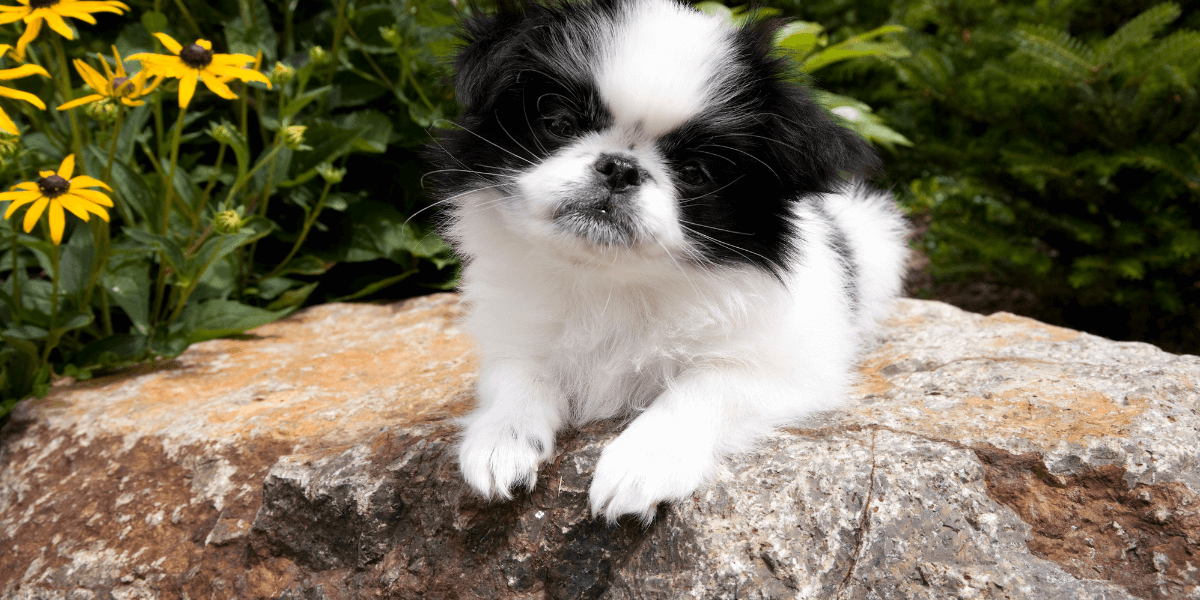
Common health concerns and tips for extending your Japanese Chin’s life.
- Patellar Luxation: A common knee issue in small breeds
- Heart Disease: Regular vet visits can help monitor heart health
- Eye Problems: Protruding eyes are prone to irritation and injury
- Brachycephalic Syndrome: Difficulty breathing in flat-faced breeds
- Dental Issues: Regular teeth cleaning is essential for oral health
- Hypoglycemia: Toy breeds can experience low blood sugar
- Allergies: Monitor for food or environmental allergies
- Vet Visits: Routine vet check-ups ensure early detection
6. Exercise and Activity
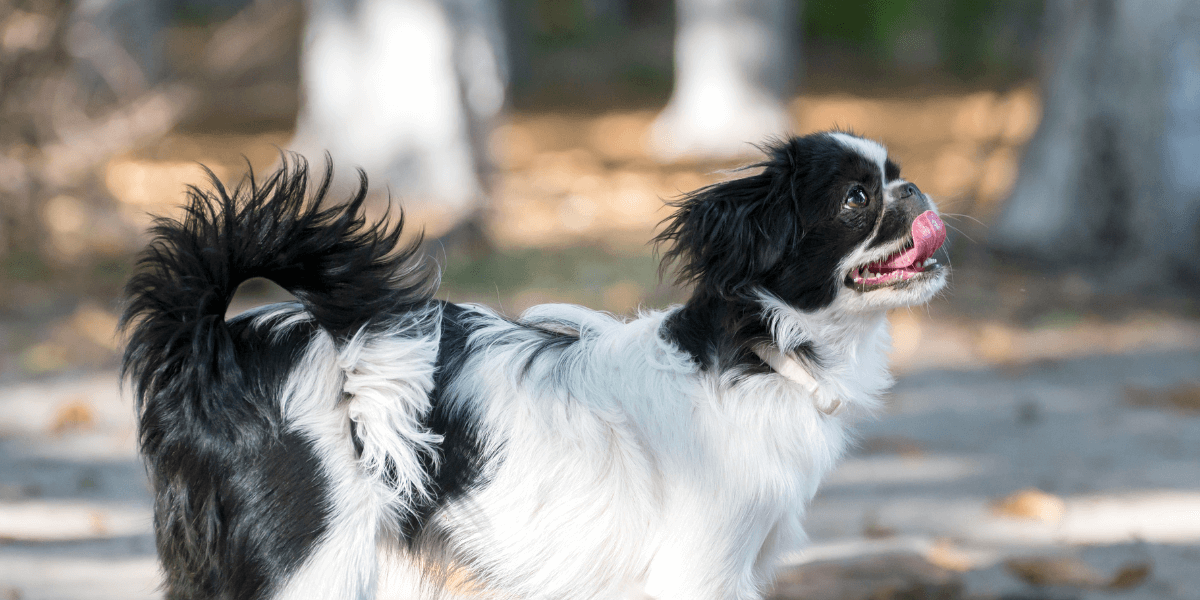
The ultimate guide to Japanese Chin highlights the importance of daily exercise and activity.
- Daily Walks: They need at least one walk a day
- Indoor Play: They enjoy light play indoors
- Mental Stimulation: Puzzles and toys keep them engaged
- Interactive Games: Play fetch or tug-of-war to bond with them
- Supervision: Watch them during outdoor activities to avoid injury
- Dog Parks: They enjoy socializing at dog parks but prefer calmer areas
- Rest: They need a lot of rest due to their small size
- Weather Sensitivity: Avoid extreme temperatures during exercise
Explore effective training methods to keep your Japanese Chin active, inspired by French Bulldog training strategies.
7. Nutrition and Feeding
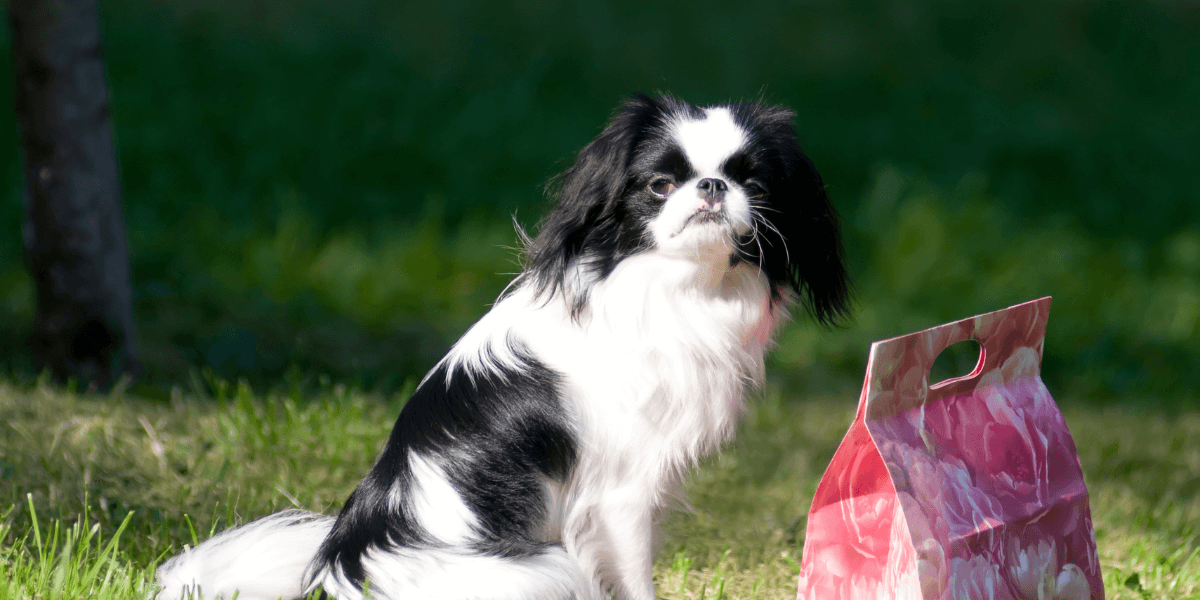
Feeding guidelines to keep your Japanese Chin healthy and energetic.
- Portion Control: Feed them according to their size and activity level
- Quality Food: Provide high-quality, balanced dog food
- Meal Frequency: Feed them two small meals a day
- Avoid Overfeeding: Be mindful of your weight to avoid obesity
- Treats: Use healthy, low-calorie treats during training
- Hydration: Ensure they have access to fresh water all day
- Supplements: Ask your vet about supplements for joint health
- Avoid Human Food: Human food can cause digestive issues
Learn about balanced diets for your Japanese Chin, drawing insights from Belgian Malinois nutritional guides.
FAQs
1. Are Japanese Chin dogs good with children?
- They are gentle and good with children but prefer calm environments
2. How much exercise does a Japanese Chin need daily?
- They need at least 30 minutes of moderate exercise each day
3. Do Japanese Chin dogs require professional grooming?
- They benefit from professional grooming due to their long, silky coat
4. Can Japanese Chin dogs be left alone for long periods?
- They are independent but should not be left alone for too long
5. What health issues are common in Japanese Chin dogs?
- Common issues include patellar luxation, eye problems, and heart disease
6. How often should I feed my Japanese Chin?
- Feed them twice a day with portion-controlled, high-quality dog food
7. Are Japanese Chin dogs easy to train?
- Yes, they respond well to positive reinforcement and consistent training
Conclusion
- The ultimate guide to Japanese Chin ensures you're well-prepared for their care and happiness
- They are great companions and adapt well to apartment living
- Grooming and regular vet visits are essential to keep them healthy
- They need moderate exercise and a balanced diet to thrive
- With proper care, a Japanese Chin can live a happy, healthy life
- Consider adopting a Japanese Chin if you want a loving, loyal companion



